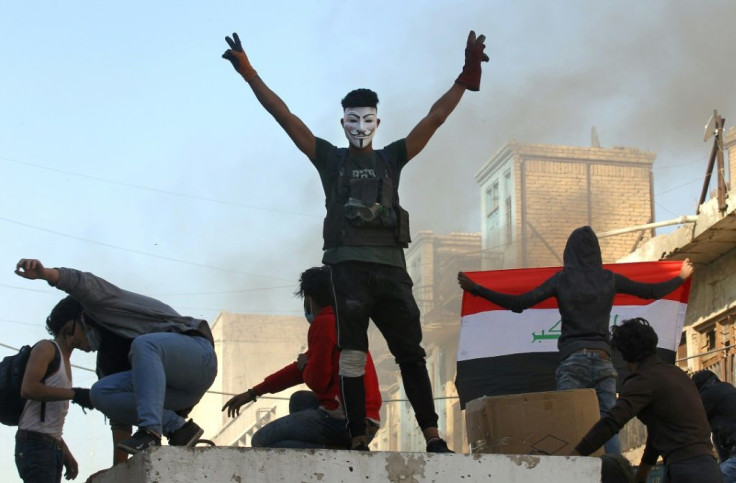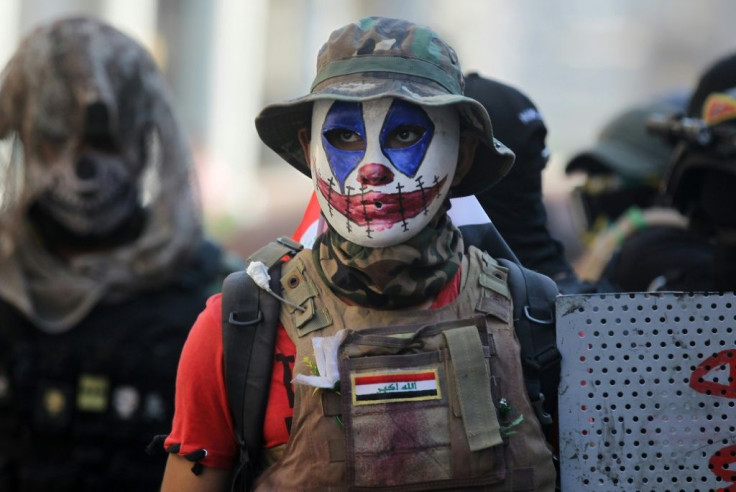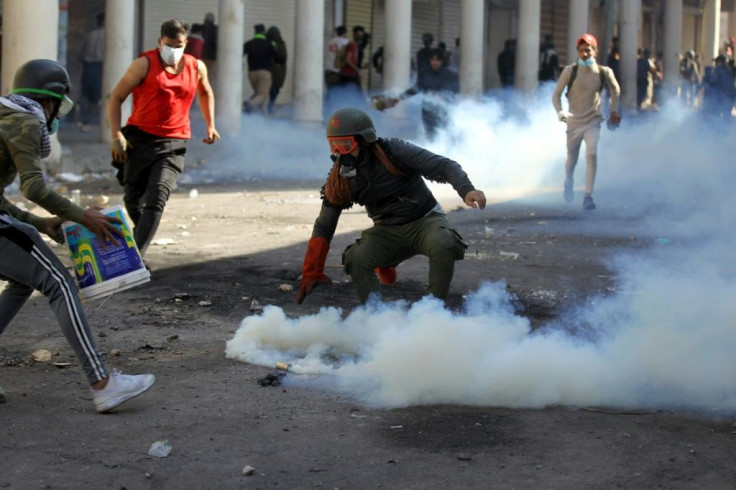4 Dead In Iraq Capital As Top Cleric Bluntly Pushes Reform

Three anti-government protesters were killed in clashes with security forces in Iraq's capital on Friday as the country's top Shiite cleric bluntly pushed politicians to enact electoral reforms.
More than 340 people have died and thousands have been wounded since rallies against widespread graft and unemployment erupted in Baghdad and the mostly-Shiite south last month.
For weeks demonstrators have demanded the government step down but leaders have resisted, instead proposing a raft of measures including recruitment drives and a revamp of Iraq's electoral system.
Protesters have brushed off the proposals, maintaining their sit-ins in Baghdad's iconic Tahrir (Liberation) Square for four consecutive weeks.
They have spread onto bridges leading to the western bank of the river Tigris, an area which houses parliament, the prime minister's office, several ministries and the central bank as well as foreign embassies.
On Friday, security forces fired tear gas and live rounds to keep crowds from crossing, killing three protesters and wounding another 30, a medical source told AFP.
Two were shot dead and a third was killed by a tear gas canister, which rights groups say are being improperly fired directly at protesters in a way that can be lethal.

Demonstrators were enraged at the violence, which has continued despite calls by the country's top Shiite authority, or marjaiyah, to deal with the rallies peacefully.
"The marjaiyah banned shooting (at protesters), but it's still happening and people are still dying," said Ahmad Mohammad, a 58-year-old protester in Tahrir.
In an unusually brief sermon on Friday, Grand Ayatollah Ali Sistani repeated his support for the protest movement and urged politicians to prioritise new election laws.
"The marjaiyah stresses the need to work quickly to pass an electoral law and a law on the electoral commission," said the sermon, read by a representative in the holy city of Karbala.
But the call was met with scepticism from demonstrators, who have sought more robust support from the seat of Shiite religious power in Iraq.

"They're going too slowly on the government. I call them the silent marjaiyah," another demonstrator scoffed.
Parliament earlier this week began discussing a draft electoral law that would shrink parliament and distribute votes according to a complex hybrid system.
But the United Nations mission in Iraq (UNAMI) said the draft law "requires improvements to meet public demands."
Critics of the current law say it favours entrenched political parties over independents and is vulnerable to corruption and seat-buying.
The last elections in May 2018 produced a parliament in which no bloc had a clear majority -- a shaky foundation for Prime Minister Adel Abdel Mahdi.
Parties have rallied around Abdel Mahdi in recent weeks, but protesters have also defiantly clung on.
They were buoyed on Thursday by the government's lifting of its weeks-long restrictions on social media, opening the door to a slew of critiques of the political class.
"They have lost all legitimacy and their proposals don't represent us. This government must resign," said Abou Ali, a 32-year-old demonstrator in Baghdad.
Further south, sit-ins continued in the largely agricultural towns of Hillah, Nasiriyah and Diwaniyah, as well as the two Shiite holy cities of Najaf and Karbala.
In protest-hit Kut, a local tribal leader said protesters would maintain the pressure on authorities.
"We are determined to keep demonstrating until our demands are met: the government's resignation and parliament's dissolution," said Nasir al-Qassab.
"We reject proposals from the government... They're just trying to procrastinate," he said.
© Copyright AFP 2024. All rights reserved.




















